I have no idea. But today I managed to get a lot of work done, so I'll have to read these later:
Finally, if you live in Chicago and look straight up and slightly north with binoculars tonight, you might see a little green comet that last passed Earth 50,000 years ago.
I can't describe how much better I feel today after weeks of gloomy, cloudy weather. WGN's Tom Skilling confirms it's not all in my imagination:
It's official—despite today's sun, January 2023 will go down on the books as the cloudiest January since sunshine records were taken starting 129 years ago in 1894. That's the word from Frank Wachowski who reports the month hosted only 18% of its possible sun--eclipsing the 1998 record of 20%!
On the other hand, the temperature outside Inner Drive Technology World Headquarters means Cassie won't get her hour of walks today, and I probably won't get my 10,000 steps:
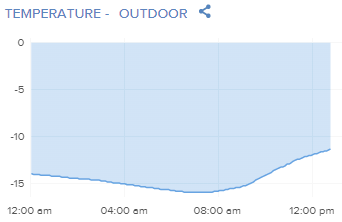
And yet, one 24-hour period with temperatures skirting -15°C doesn't suck. We're still having a warm winter, all things considered. The December and January temperatures we've experienced put us in the top 20 warmest winters in history.
February, though. February might kick our butts. Except...
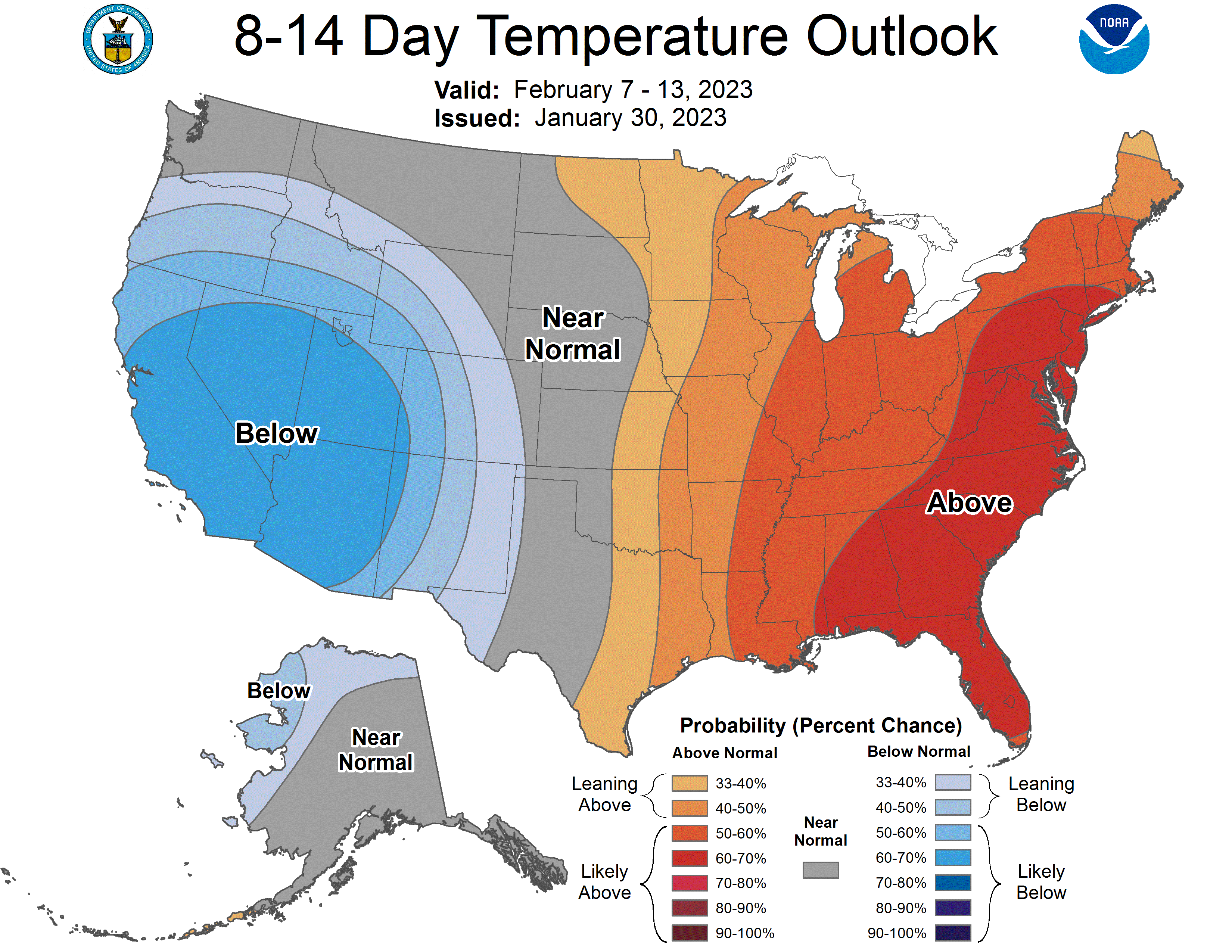
Know hope.
The sun finally came out around 3:30 this afternoon, as a high overcast layer slid slowly southeast. Of course, the temperature has fallen to -11°C and will keep sliding to -18°C overnight, but at least the gloom has receded! January will still end as the gloomiest ever, however, with around 18% of possible sunshine all month, plus whatever we get tomorrow.
Meanwhile, I want to come back to these articles later:
Finally, looking back a little farther (about 13 billion years), the James Webb Space Telescope has picked out some of the oldest galaxies in the universe. And they're really weird.
Time is funny. On this day, 90 years ago, radio station WXYZ in Detroit began a serial called "The Lone Ranger," written by Fran Striker, who had probably never seen Texas or a Native American person in his life.
When I read that this morning, it struck me that the radio audience in Detroit had living memory of the closest historical analogue to the entirely-fictional Lone Ranger character. Deputy US Marshall Bass Reeves served from 1875 to 1907, retiring just 26 years before the radio show started. So to the radio audience, the period depicted in the show was only as far back as 1997 is to us. The Lone Ranger show, in other words, was as historical to the audience as Life On Mars was to its viewers in 2007, or NYPD Blue is to us today.
I remember growing up in the 1970s and thinking that the 1960s were this weird, long-forgotten time before my world existed. Kind of like my friends' kids think the 2000s were the same.
One other thing. In one of life's weird coincidences, 30 January 1933 also saw the appointment of a new German Chancellor who nearly destroyed Europe. The guy appointing him to the spot thought the grown-ups in the room could contain him. Glad we learned from that mistake.
Two writers in the Times looked at two different aspects of the Conservative party's ongoing vandalism to the United Kingdom. First, David Wallace-Wells tracks the post-Brexit economic declines:
By the end of next year, the average British family will be less well off than the average Slovenian one, according to a recent analysis by John Burn-Murdoch at The Financial Times; by the end of this decade, the average British family will have a lower standard of living than the average Polish one.
On the campaign trail and in office, promising a new prosperity, Boris Johnson used to talk incessantly about “leveling up.” But the last dozen years of uninterrupted Tory rule have produced, in economic terms, something much more like a national flatlining. In a 2020 academic analysis by Nicholas Crafts and Terence C. Mills, recently publicized by the economic historian Adam Tooze, the two economists asked whether the ongoing slowdown in British productivity was unprecedented. Their answer: not quite, but that it was certainly the worst in the last 250 years, since the very beginning of the Industrial Revolution. Which is to say: To find a fitting analogue to the British economic experience of the last decade, you have to reach back to a time before the arrival of any significant growth at all, to a period governed much more by Malthusianism, subsistence-level poverty and a nearly flat economic future.
As Burn-Murdoch demonstrates in another in his series of data-rich analyses of the British plight, the country’s obvious struggles have a very obvious central cause: austerity. In the aftermath of the 2008 global financial crisis, and in the name of rebalancing budgets, the Tory-led government set about cutting annual public spending, as a proportion of G.D.P., to 39 percent from 46 percent. The cuts were far larger and more consistent than nearly all of Britain’s peer countries managed to enact; spending on new physical and digital health infrastructure, for instance, fell by half over the decade. In the United States, political reversals and partisan hypocrisy put a check on deep austerity; in Britain, the party making the cuts has stayed steadily in power for 12 years.
Over two centuries, a tiny island nation made itself an empire and a capitalist fable, essentially inventing economic growth and then, powered by it, swallowing half the world. Over just two decades now, it has remade itself as a cautionary tale.
The Tories' lazy malfeasance in promoting and then implementing Brexit may also unwind 25 years of community-building on Eire in ways literally everyone predicted, says writer Christopher Caldwell:
Ireland remains part of the European Union but Northern Ireland no longer is — and yet the two parts of the island are bound by trade and a 25-year-old peace treaty that helped defuse a terrorist conflict between Protestant unionists and Catholics.
Those loose ends were tied up in a little-understood clarification of Brexit called the Northern Ireland protocol, ratified in January 2020. It looked like a mere codicil three years ago; now it looks like a serious diplomatic blunder that could threaten Britain’s territory and the region’s peace.
[Former Prime Minister Theresa] May promised — too hastily, in retrospect — to honor the 1998 Good Friday peace agreement among Britain, Northern Ireland’s political parties and the Republic of Ireland. One of the main things the agreement did was to bind together the economies of Ireland’s north and south. But adapting that arrangement to a post-Brexit world came at a steep constitutional price for the north. To protect the European single market against smuggling and the transfer of unauthorized goods through Northern Ireland, a customs border would be established between Northern Ireland and Britain. To administer the single market, the European Court of Justice was given authority to interpret E.U. law in Northern Ireland.
Caldwell seems to favor UK independence from the EU, but he makes a good point. Something has to give. And it looks like even odds whether Brexit winds up unifying Eire into one Republic of Ireland, or reigniting the Troubles. Can't wait to find out...
I enjoyed my lunch in the Loop today, but not the walk back to the office:
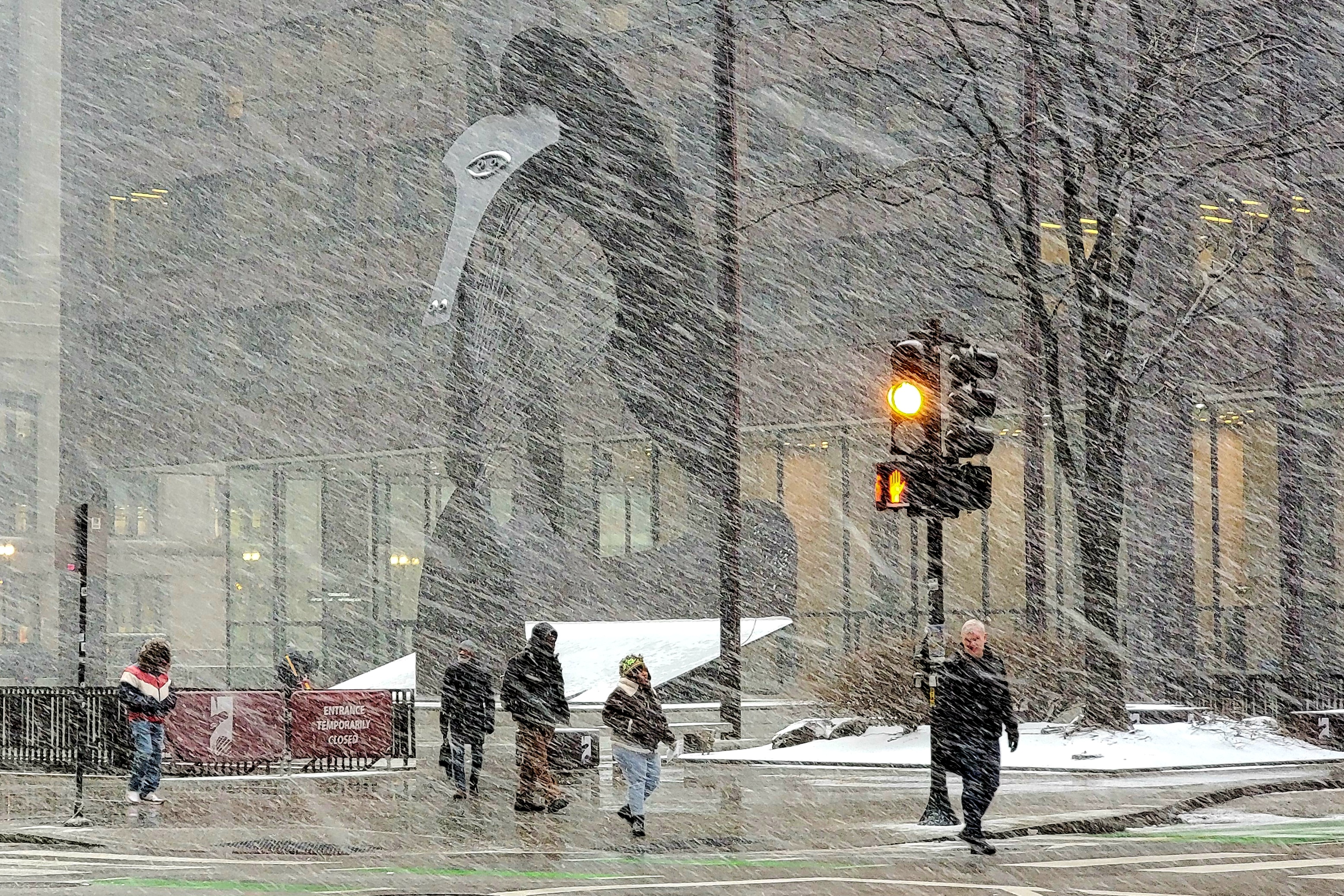
Sigh. At least the sun sets at 5pm for the first time since November 5th.
Welcome to stop #78 on the Brews and Choos project.
Brewery: Goose Island Beer Co., 1800 N. Clybourn Ave., Chicago
Train line: CTA Brown Line, Armitage
Time from Chicago: 12 minutes
Distance from station: 600 m
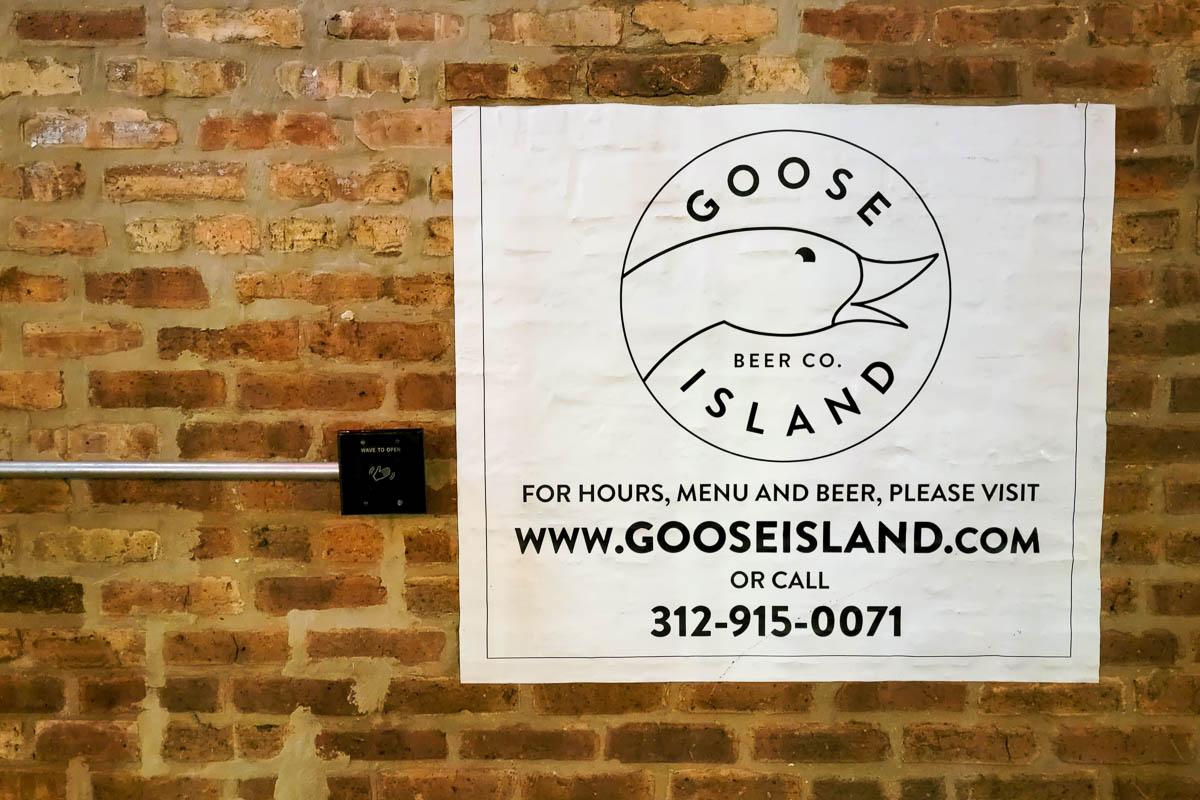
I put this one off for a long time because, in the years since I last visited, Chicago has had an explosion of craft breweries. Also because InBev bought them 12 years ago. The combination has taken Chicago's first and, for a long time, only local brewery taproom and made it kind of mediocre.
So why now? First, because later this year they plan to move to the Salt Shed, so there wasn't much time left; and second, because I saw M3GAN at the Arc 14 theater three blocks away, so it was convenient.
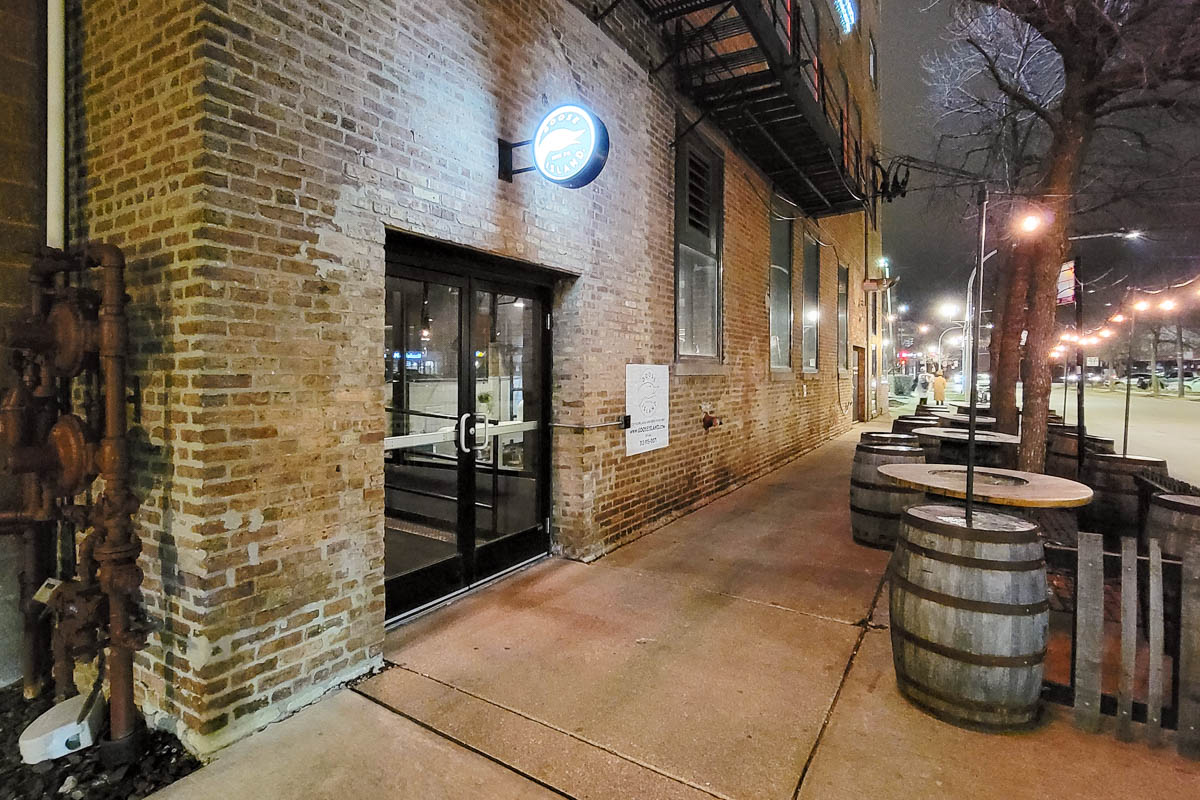
Since I used to drink a lot of Honkers Ale and the basic IPA, on Saturday I tried three beers I hadn't actually had before: the Phantom Limb pale ale (5.3%), the Flyway West Coast IPA (7.3%), and the Hazy Beer Hug IPA (6.8%). They were all fine, and I would have them again, but (a) I didn't take notes because I was out with a friend and (b) I wouldn't have had a lot to say anyway.
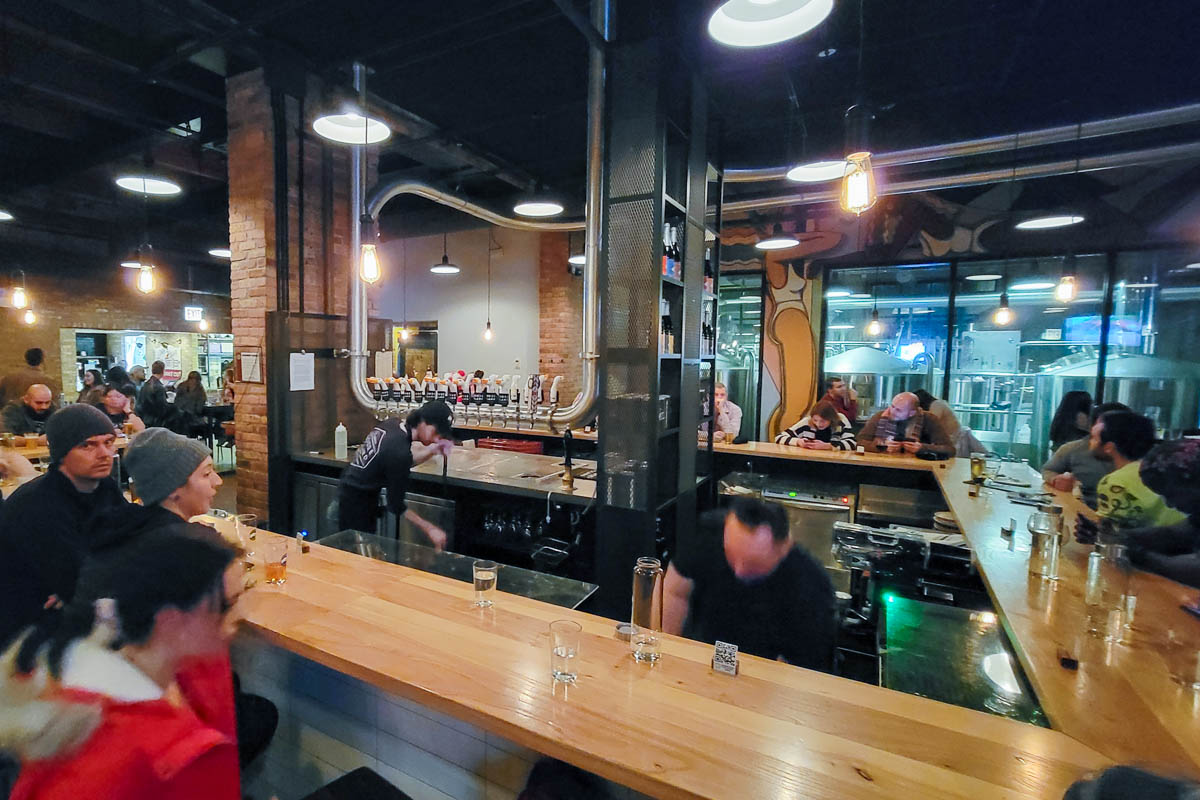
Goose Island used to be the only game in town, but they were revelatory. But a lot more breweries have opened up since 1987, with a lot better beers. InBev goes for volume over quality.
I'll still stop into their Fulton Avenue taproom at some point. And the new brewpub at the Salt Shed, when it opens. But really, stopping into their aging Clybourn brewpub was just to complete the B&C list.
Beer garden? Sidewalk patio
Dogs OK? No
Televisions? Yes, avoidable
Serves food? Yes, full menu
Would hang out with a book? Maybe
Would hang out with friends? Maybe
Would go back? Maybe
I've written before about urban highways, never favorably. Ploughing massive roads through dense urban areas has done incalculable damage to North American cities that tearing them down or burying them has only just started to fix—but usually with an order of magnitude more cost than their initial construction.
Today I got an innocent little email listing houses for sale around Chicago, both because I'm interested to see what's out there, and also because I've been too lazy to turn it off since I last moved. But one house stood out today: a beautiful, 4-bedroom Victorian built in 1898 with a lovely wraparound porch, tons of light and air, steps from everything.
I would love to live in a house just like this. In fact, there are similar houses near me, with price tags around $2-$3 million.
This stately lady in Old Irving Park can be yours for only $750,000. And that jaw-dropping difference in value is entirely due to its location.
You see, even though this house is steps from everything—only four blocks to the Metra, three blocks to the El, close to the shops in the historic commercial corridor along Elston—it's also just 200 meters from the 10-lane I-90/94 expressway:
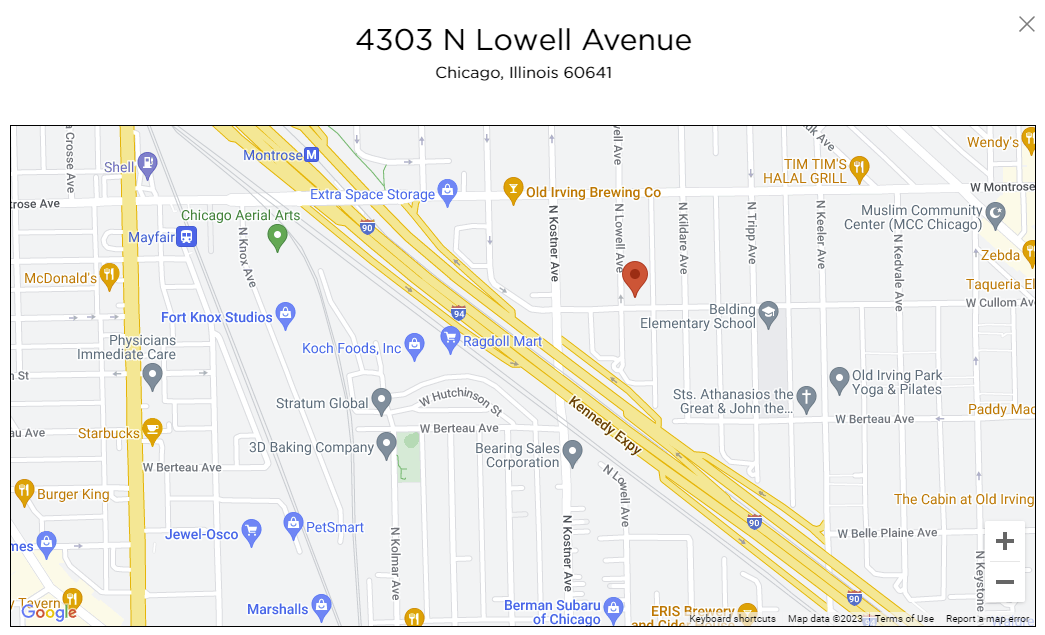
I mean, holy hell. Getting to the El or to the Metra stations at Mayfair or Irving Park requires crossing all those lanes of traffic. I've done it; the Montrose and Irving Park bridges are soul-crushing for pedestrians. Worse, the Keeler underpass (which you'd take to the Irving Park station) requires you to cross two entrance and exit ramps on either side of a half-block-long underpass.
I'm not even going to talk about how loud the 10 lanes of traffic must be.
In short, this beautiful house, "the second built in the area," can't get anywhere near the price it would had the city not destroyed the neighborhood in the 1950s.
Sad.
In other news:
And finally, a glimmer of hope that the 10-year project to build one damn railroad station near my house might finally finish in the next few weeks.
Longtime readers will know that I have spent a lot of time in Half Moon Bay, Calif., over the past 15 years. So yesterday's events shocked me:
Seven people are dead following two linked shootings in the Northern California city of Half Moon Bay, officials said.
The San Mateo County Sheriff’s Office tweeted at 3:48 p.m. Monday that they were responding to a shooting “with multiple victims in the area of HWY 92 and the HMB City limits.” The office tweeted roughly an hour later that a suspect was in custody and there "is no ongoing threat to the community at this time."
San Mateo County Sheriff Christina Corpus confirmed at a press conference Monday evening that seven people were killed in two related shootings. She said four victims were found dead from gunshot wounds at a location in the 12700 block of San Mateo Road, also known as Highway 92, around 2:30 p.m. A fifth victim was discovered with "life-threatening injuries" and transported to Stanford Medical Center. They remain there in critical condition.
California Governor Gavin Newsom (D) learned of the shooting while at the hospital with victims of Sunday's mass shooting in Los Angeles.
Neither the National Rifle Association nor the right-wingers suing Illinois over its latest attempt to regulate military weapons commented, though we can all expect them to say it's "too soon" to talk about why we're still the only country in the OECD where this happens. Perhaps they'll talk to the San Mateo County farm families mourning their loved ones today?